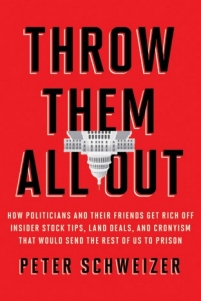A young fruit vendor, overcome by desperation, sets himself on fire in a public square in Tunisia. His suicide sparks protests around the globe. Millions take to the streets. Untold thousands die. Entrenched dictatorial regimes crumble seemingly overnight.
To commemorate this worldwide struggle for freedom, TIME magazine honors “The Protester” as Person of the Year, featuring a cover photo of … Sarah Mason, an Occupy L.A. activist who adamantly refuses to pay her credit card bills.
Take that Wall Street.
“I still have debt and I’m not paying it back because I feel like at this point, I have an obligation to try and disrupt and upset the financial industry, the credit industry,” Sarah told 360 Magazine. “Why would I miss this beautiful opportunity to say, ‘no, you don’t get your money back’?”
Despite a valiant effort to lionize her, 360 Magazine acknowledges, “Her unabashed attitude falters slightly, however, when asked about how she incurred significant personal debt.”
“Each paycheck that I would get, I would overspend,” she said “I had already spent all this money on clothes, make-up, accessories, and I got the credit card because I needed to [pay] my electric bill. … And then of course, it turned into I just started using it recklessly.”
That TIME selected a dead-beat American credit-junkie to symbolize the brave souls who risked everything in their struggle for freedom tells us a lot about why the dinosaur media is dying–and quite a bit about the Occupy Wall Street movement itself.
Before Sarah was inevitably identified as the poster girl of the protest movement (you have heard of the Internet, haven’t you TIME?) the type-setters at last century’s leading magazine concocted a flimsy cover-story for their cover story.
“As the artist behind our Person of the Year 2011 cover commemorating this year’s pick, The Protester, Shepard Fairey says his cover image is based on a composite of 26 different photographs of real protests from around the world.” Well, Fairey also said he didn’t steal an AP photo of Obama for his iconic HOPE poster before he fessed up to lying about that and destroying evidence.
Fairey “used a collage of scenes from the Arab Spring to Moscow to Occupy Wall Street as a backdrop, images he said shows the dramatic accumulation of these global protests,” TIME wrote.
But the protester on the cover was, in fact, derived from a single photo of Sarah Mason, who–despite her own dramatic accumulation of accessories–now represents the struggle the world’s genuinely oppressed people.
While not the best person to symbolize the Arab Spring uprising, Sarah an ideal representative of the Occupy Wall Street protest movement, victimized as she was by “the capitalistic system in American society.”
“The reality is that, of course, is what compelled me to buy clothes and make-up and all of these things was insecurity and a feeling of being inadequate … What I also think it was that you’re just surrounded by these messages telling you to buy, buy, buy, consume, consume, consume.”
Most people facing that kind of pressure while deeply in debt would have cut up their credit cards and worked out a payment plan. But Sarah Mason is no quitter. She’s a fighter, and a born leader. “It’s easy not to pay your debt!” she said. “Nothing can happen … if you have assets, people can seize them, but if you don’t have assets, what are they going to take?”
Well, they could start with her tent.
According to 360 Magazine, “The tent that Sarah leaves looks like any other gray nylon camping tent from the outside, of a nondescript size and description; however a quick peek inside reveals a bohemian paradise, complete with tapestries, blankets and pillows in rich earthy tones, candles and picture frames. It’s a cozy haven where one can hide from the chaos of a bustling day in downtown Los Angeles.”
And that, my friends, is the iconic summation of the Occupy Wall Street movement–a falsely humble exterior stuffed with luxury items that were purchased on credit which won’t be repaid.
A footnote. Exactly three days after TIME announced their Person of the Year, thousands of Tunisians gathered in Mohamed Bouazizi Square–named after the young fruit vendor whose suicide “restored Tunisia’s dignity” and triggered a global struggle for freedom–to honor him and to celebrate their new freedom.
Half a world away, Sarah Mason may well have been snuggling under earth-toned blankets in her “bohemian paradise” on Bank of America Square pondering the riches her new-found fame would bestow upon her.


COMMENTS
Please let us know if you're having issues with commenting.